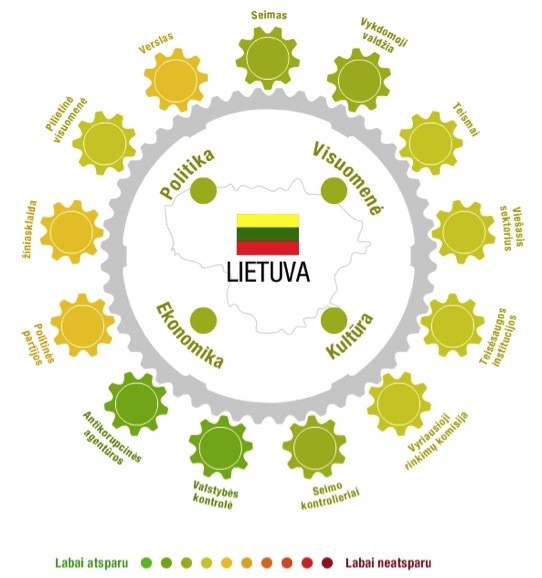The National Integrity Study includes the most important government institutions that are responsible for the fight against corruption. If these institutions function well, they create a strong and resistant NIS that can effectively fight corruption; conversely, if there are not enough essential rules and unreported behaviour is prevalent, perfect conditions form for corrupt behaviour and the disturbances in societal development and social cohesion. Due to this, reinforcing the NIS encourages a country’s development, better governance and the advancement of society. NIS evaluates the legal system and the actual activities of the institutions that are responsible for the legal anti-corruption system. Included among those institutions are the legislative and executive branches, the courts, the public sector, law enforcement agencies, election monitoring institutions, Ombudsmen, audit and anti-corruption institutions, political parties, as well as the media, civic society and businesses.
National Integrity Study: what are the results in Lithuania?




